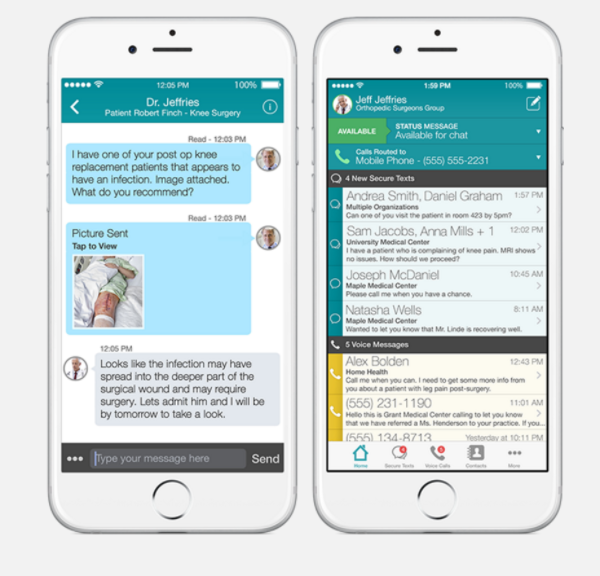 The United States Department of Defense has tapped healthcare communication company Vocera Communications to deploy San Jose, California-based Vocera’s system in the Army’s Medical Command facilities around the world.
The United States Department of Defense has tapped healthcare communication company Vocera Communications to deploy San Jose, California-based Vocera’s system in the Army’s Medical Command facilities around the world.
The $14 million contract – Vocera’s largest to date – will equip Army care team members with the company’s wireless, hands-free clinical communications platform in 23 facilities. The Vocera platform integrates with more than 120 clinical systems including nurse call systems, electronic health records, physiologic monitors, ventilators and real-time location systems, and enables mobile workers to connect quickly with the person, information or system they need.
“Vocera is proud to be the standard for wireless hospital communication for the U.S. Army Medical Command world-wide,” Vocera President and CEO Brent Lang said in a statement. “In mission-critical environments such as hospitals, it’s vital for mobile workers to have reliable technology that connects them instantly with the right person or information at the right time to deliver high-quality care and ensure patient safety and satisfaction.”
In 2015, the DoD gave the Vocera Communication Platform an an Authority to Operate certification based on compliance with the federal agency’s security risk and management requirements. The contract is the result of the Army’s research on the use of Vocera’s hands-free technology at Evans Army Community Hospital in Colorado. Using the system, the hospital saw an overall improvement in operational efficiencies: the emergency department reported a 50 percent decrease in the number of patients who left without being seen; the family ward saw an improved workflow that resulted in a 75 percent increase in nurse response speed and an 81 percent reduction in patient falls; the primary care and specialty clinics helped nurses gain an extra hour and a half per day and physicians an extra 40 minutes per day through saved time and more efficient actions.
Vocera has long been a mainstay in clinical communications, collaborating with big names across the industry and acquiring several competitors. In 2009, it partnered with Motorola to create a hospital-specific smartphone, and soon after began integrating the device with AirStrip and Epocrates. In 2011, it acquired Toronto-based Wallace Wireless for its text-messaging capabilities, and in 2014 acquired mVisum for its medical alarm capabilities. In October 2016, the company acquired fellow clinical communications company Extension Healthcare for $55 million in an all-cash transaction.


















